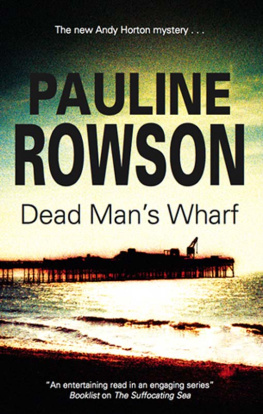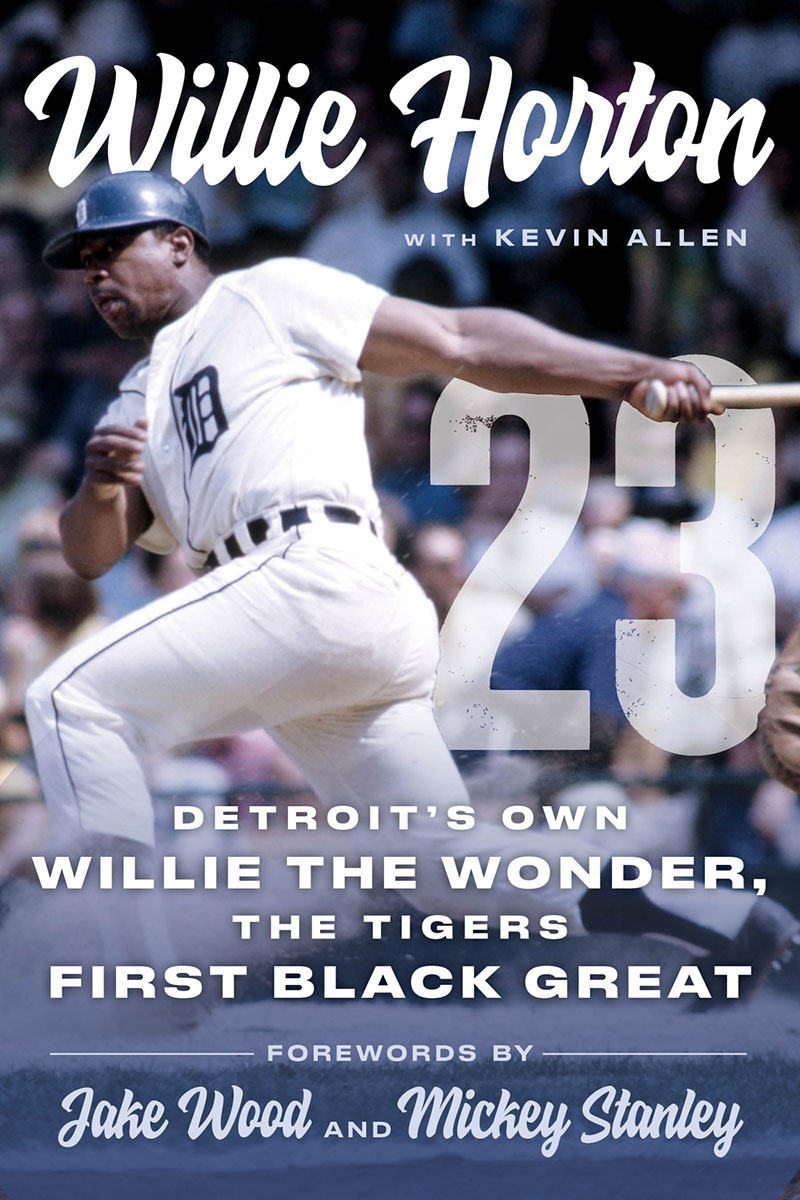
Contents
Foreword by Jake Wood
My first Willie Horton contact was with his bat. It was the fall of 1961, after my first season with the Detroit Tigers. They had asked me to come to winter ball in Dunedin, Florida, to work on a few aspects of my game.
As I walked onto the field, there were bats lying on the ground. I grabbed one, and I couldnt believe how heavy it was. It was like I was holding a tree trunk.
Whose bat is this? I said to no one in particular.
Someone pointed to a young man in the outfield. It was Wille. From then on, Willie had no problem with me. That bat was so heavy that I remember thinking, How in the world could anyone swing this?
I dont know how heavy it was, but it felt like a 50-ounce bat.
But once you realize his stature you understand. He was about to turn 19 when I met him and he was 511, and more than 200 pounds. Willie was built like a fireplug, and he was a strong, strong individual.
When you are playing baseball, there is a certain sound you hear that automatically draws your attention. Every bat has a sweet spot. And when you hit the baseball on that sweet spot it makes a sound that tells you that you have hit it well.
Willies sweet spot was three-quarters of his bat, and mine was maybe three or four inches. That was a big difference.
Willie told me that his father had gone down to Briggs Stadium to watch the Tigers and saw me play and that had influenced the family decision to have Willie sign with the Tigers. Before then, Willie thought he was going to sign with the New York Yankees.
I always joke with Willie that the reason why he ended up on the Tigers was because his father saw me and thought, Wow, if the Tigers signed this guy, Willie can make the Hall of Fame.
Willie wanted to be a catcher. He loved to catch. But when he signed with the Tigers, they put him in the outfield. He never complained. That tells you something about Willies attitude. They never said, if we sign you, we are going to do this, that, or another. They signed him first and put him in the outfield. I dont know why they did it. But I watched Willie and he just handled it.
When you are a good ballplayer, you grow up with your parents loving you and your fans loving you. You are all of this and all of that. Hey, I was All-State in New Jersey when I signed with the Tigers. But when you go to spring training, there is an All-State guy from New York, an All-State guy from Texas, an All-State guy from Mississippi, an All-State guy from California and we were all competing against each other.
Its about how you handle that mentally. Some guys could, some couldnt.
Some guys cant handle it because they have been patted on the back so much and people have raised them up. Now their head is swollen. So now that you are competing against players who are at your level, how do you respond?
Now we come to Willie and how he responded to having to compete in the outfield. An unfamiliar position. How did he respond? With flexibility and a goal in mind. And to this day, thats what he teaches to others.
Baseball is a life experience. In baseball, you fail more than you succeed. If you succeed three out of 10 times as a hitter, you are considered a good hitter. I always tell little kids, Have you ever seen anyone bat 1.000? I havent.
But throughout my life Ive seen the contributions that my teammates have made that dont show up in the newspaper. Thats what Willie has always tried to instill in others. Still does today.
Here we are in 2022 talking about an experience I had with Willie in 1961. Thats the kind of impact he has on people.
I was with the Tigers when Willie came up in 1963 and 1964, but he solidified himself in the lineup in 1965. But even in that process, it did not change his character or who he was. It didnt change his demeanor. When some guys get to that level, there is not a hat big enough to fit their head.
Even to this day, he has achieved so much, and yet he retains his humility. When Ive been fortunate to go down to spring training as a guest of the Tigers, I still see him working with younger players, trying to instill confidence in them. Its a mental thing. He is always trying to encourage these young men, He can tell them about the ups and downs. Willie can speak from experience.
The game was hard for everyone, not just the African American players. When I came up there were only 10 teams in the American League and eight teams in the National League. The Dodgers had the same guys in their lineup, the same team, every year, same as the Cardinals. When you got on a team, it seemed like you were there for life.
When I was at Denver in AAA ball, I came across African American players who had been in the minor leagues for eight or 10 years. They could play. Believe me. But they were going nowhere. Opportunities didnt present themselves.
I thank God for an opportunity that was presented to me. In 1960, the Tigers traded second baseman Frank Bolling to the Milwaukee Braves for center fielder Billy Bruton. That opened up the second base position. And Id just had a fairly decent season (24 doubles, 18 triples, 12 home runs, 34 stolen bases, and .305 average) at Denver.
You have to take advantage of that opportunity. Thats the attitude that Willie still instills in people today. You have to be prepared when your opportunity comes. You cant live off what happened last season. You have to produce every season to stay in the major leagues, because there are a thousand guys waiting to take your place.
Willie has accomplished so much in the game. But hes given back to the game. Some do not do that. Ive seen some players accomplish things and say, I got mine; now you go get yours. They dont want to help you. Thats not Willie Horton.
When you enter a clubhouse with Willie, you see the respect that even young players have for him. Its amazing. Its because he is always reaching out to others.
I dont have any regrets about my baseball career. I thank God for players like Jackie Robinson, who in 1947 integrated the great game of baseball. Im grateful for all those who played the game and had an impact, especially players like Willie. Still today, he paves the way for people after him.
His humility is even more impressive than his hitting was.
Jake Wood
Detroit Tigers infielder, 196167
Foreword by Mickey Stanley
When I first met Willie Horton at the Detroit Tigers winter ball instructional camp in 1961, I couldnt believe what a powerful build he had. His arms were huge. He was stronger than heck. Every time he swung the bat it felt as if the ball was heading out of the park. I had heard about him, but it was different seeing him in person.
We are only three months apart in age, and after seeing him, my first thought was: This is my competition?
Willie had power like no one I had seen. He also worked at his game. He was the hardest worker of any of us. I remember he wore this red rubber suit under his uniform. Even during exhibition games he wore it. He wanted to sweat off pounds. No question about his drive to be a major league player.
Even though Willie and I were competing against each other for a place on the Tigers roster, we became friends quickly. Hes such a good guy. In this book, Willie will tell you how difficult it was for Black players in certain cities where segregation was still present in the early 1960s.
It was embarrassing to me, and probably to other White players, that this was still going on. I certainly cant pretend to know what it was like to be a Black player in that era. All I know is Willie and I were close friends in the minors and at the major league level. We are still friends today.









![Ivor Horton [Ivor Horton] - Ivor Horton’s Beginning Java®, Java 7 Edition](/uploads/posts/book/119392/thumbs/ivor-horton-ivor-horton-ivor-horton-s.jpg)



